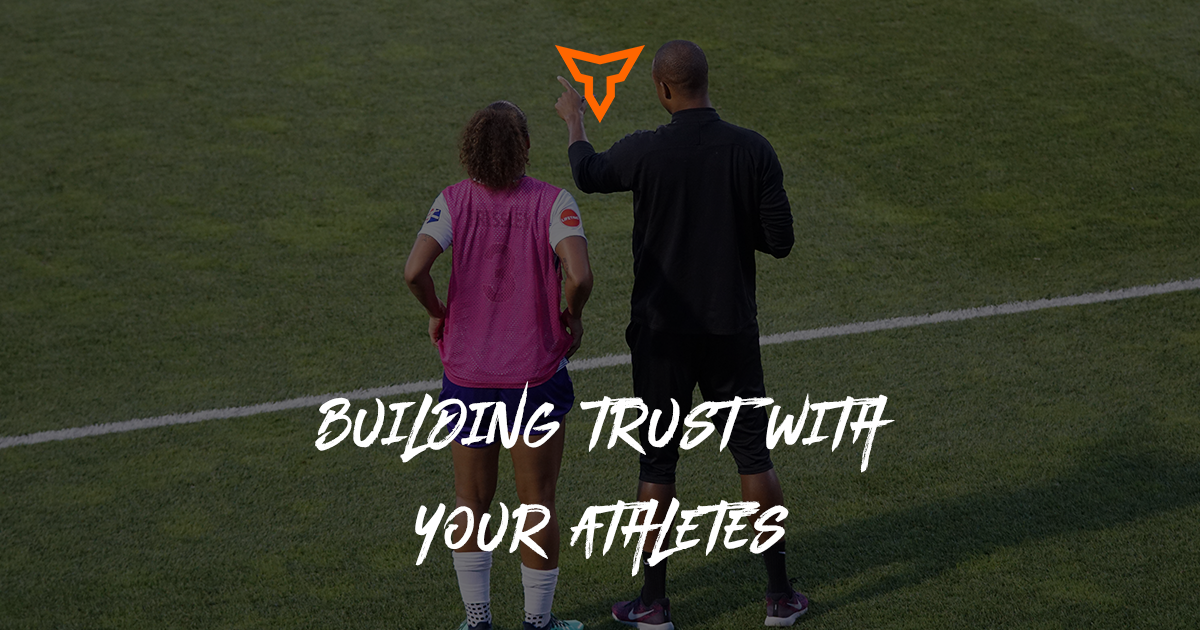Coaching can be a very rewarding profession. It can also be challenging, require a lot of schedule flexibility with ever-changing training time, involve seven-day work weeks and twelve-plus hour work days, not to mention the daily meticulous tasks wiping down machines, re-racking weights, and tidying equipment. I firmly believe that the foundation of every great strength coach is developed through many hours of those latter tasks, especially if they start out as an intern or graduate assistant. I wouldn’t trade the experience of those earlier years in my career when I juggled multiple teams across different weight rooms and practice fields from 6:00am to 7:00pm multiple days each week, and spent many week nights and weekends at extra sessions or competitions. It all builds character, confidence, skill, mental endurance, and professional relationships. However, if your life is not balanced, working in this field can also lead to career and coaching burnout. Here are some ways to excel at work and prevent coaching burnout so you can protect your enjoyment of coaching and overall mental wellness.
Set Boundaries
Sports, for the most part, are a year round industry and everyone involved in playing, coaching, or supporting sports teams understands that there is a sacrifice of free time, weekends, early mornings, late nights, and holidays. Last minute changes in practice time, facilities and other unpredictable things are common. That being said, you need to be clear and set boundaries for when you will be unavailable, especially if you work with multiple sports. This can be hard because you don’t ever want to deny an athlete or team the chance to train or recover, but be careful not to constantly give away your lunch breaks, workout time, family time, or social opportunities to cater to your sports outside of their regular scheduled training times. There will be certain times of the year when you have to be more flexible (post-season, exam periods, etc.) however, if you can’t remember the last time you worked out or ate lunch at a table because you are always accommodating to a last minute request, you might need to consider setting some boundaries to prevent coaching burnout.

Schedule Time Away
Most coaches will have some downtime during the winter break, spring break, or during the summer. Even if you don’t make plans to actually leave town, block out some vacation time when you will not set foot in your workplace. Having a physical break helps you to reset and refresh yourself both mentally and physically. If you have a wedding or other special event to attend out of town that’s not during one of the traditional breaks then block that time off as early as possible and go. Unless it’s really terrible timing (like a post-season championship) and you, your team, or employer decide that it’s not ideal or appropriate for you to go, you should make every effort to attend those special life events of friends and family. You might feel conflicted initially, but in the long run you’ll be grateful that you took that time to be away.
Ask for Help
No matter how skilled or experienced you are there will come a time when you’ll need help. Obviously the type of help you need will depend on your situation, but never be afraid to ask fellow strength coaches, administrators, or other coworkers for assistance when needed. Requesting new equipment, getting advice on dealing with a particular athlete, or hiring graduate assistants or interns to help maintain the facility and assist with training teams are some common ways in which we all need help from time to time. Asking for help or advice is a not a sign of weakness or incompetence. We all get better when we work together, share our strengths, and surround ourselves with skilled resources. Having extra help can also free you up to focus on new projects or be more available for a particular individual, team, or even just yourself.
Pursue Your Hobbies
I learned very quickly into my career that very few coaches have only one job. Every coach that I worked with and everyone I met at clinics and conferences seemed to have a side gig of some sort. Whether it was private coaching, selling supplements, owning a gym or promoting fitness products, everyone was doing sometime outside of their regular “nine-to-five” to earn additional income, pursue their passions, or both. For many, it’s a necessity for financial reasons, but there is also an emotional and mental benefit to pursuing interests outside of your main coaching position. I’m not just talking about hobbies that make you money, I’m speaking to any interest or hobby that makes you smile, brings peace to your life, or that provides you an opportunity to laugh and be social. These types of pursuits don’t take away from your main job, they add value and purpose to your life and prevent coaching burnout.
Build Your Non-Work Network
You should, of course, have a strong professional network of people in your career field, but you should also have an equally strong network of people and resources outside of your specific job title. As a strength coach this could include people in related fields like coaches of a variety of sports, sports medicine professionals, massage therapists, gym owners, or sports dieticians. From a broader standpoint it could and should include resources related to any hobbies, passions, or interests, your neighborhood, social groups that interest you, charitable organizations, or even places your like to visit. Having a network outside of your place or field of employment not only makes you’re a more well-rounded person but it give you a safety net of resources and support if and when you changes jobs, want to start a business, buy a new house, or anything really.
Whether your job is your passion or just where you collect a paycheck (hopefully not), it’s easy to lose your spark and feel career burn out when you don’t lead a balanced life both at work and away from it. Learning to set boundaries, take time away, ask for help, pursue outside interests, and build both your work and non-work network can help your lead a fulfilling, well-rounded, and rewarding life where you look forward to walking into work each morning instead of just getting through the day. In the end, even if your current job is where you want to be 24/7, practicing some or all of these skills will only prevent coaching burnout and make you an even better coach overall.
Subscribe to our blog
Subscribe to receive the latest blog posts to your inbox every week.
Related posts

So You Just Got Your First S&C Job

Building Trust With Your Athletes

